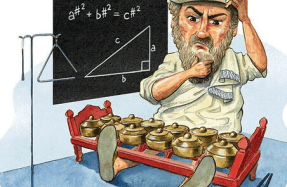A recently published history of the forgotten women of classical music set out to ‘glory in the songs and sonatas that they did write, rather than grieve for the operas and symphonies that they could not’. While those songs and sonatas are important, they do not present the whole story. For over the centuries, women have written symphonies. A good number, in fact. Just as the novel is a building block of Western literature, so is the symphony a fundamental part of Western orchestral music – and women have always been part of its history.
Accounts of its development usually start with the ‘father of the symphony’, Haydn, before exploring how Beethoven revolutionised the form, then turning to the Romantic composers as they took it into transcendent territory. Despite the proliferation of styles in the 20th century, the symphony has endured – though today it is symphonic writing more broadly defined than the specific multi-movement form that is now seen as a badge of honour for a composer. That narrative rarely includes pieces by women; but here now, in this alternative history of the symphony, their work takes centre-stage.
Let’s rewind to the 18th century, when the very idea




